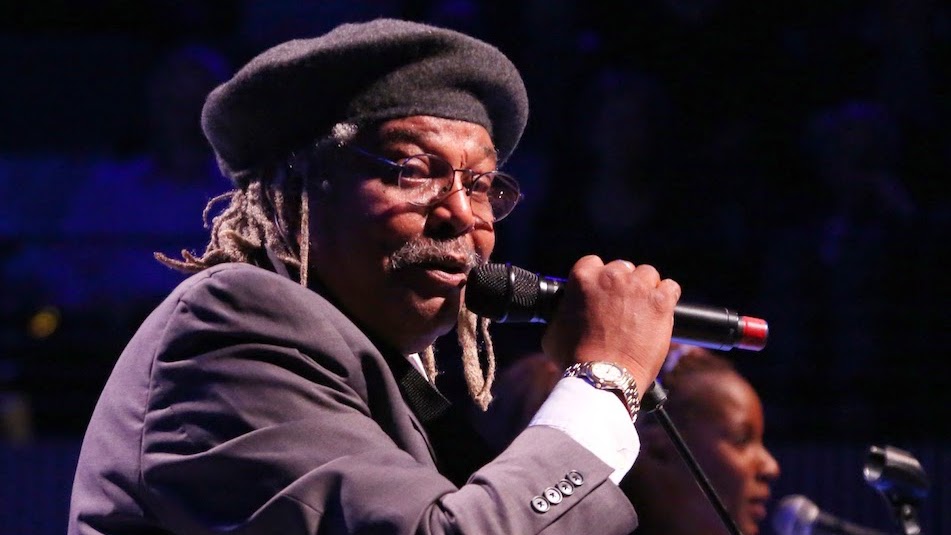Juan De Marcos
The Buena Vista Social Club Connection
July 13, 2020 | by Rusty Aceves

Juan de Marcos (photo by Rick Swig)
To get ready for this week’s dance-inspiring Fridays at Five streaming concert by Juan de Marcos and the Afro-Cuban All Stars, here’s a deeper look at the leader, who was largely responsible for one of the most successful Latin music crossover projects in decades.
If there is anyone alive who can make a claim to the resurgence of early 20th century Cuban music and its ascent into the international spotlight, it is undoubtedly bandleader and tres master Juan de Marcos González.
While long revered in Latin America and Europe as a founding member of Sierra Maestra, Cuba’s great son revival band he co-founded in 1976 while still a university student, de Marcos gained widespread worldwide notice as mastermind behind the Buena Vista Social Club — a group named for a defunct 1940s members’ club and music venue in Havana’s Buenavista quarter made up of veteran and largely retired musicians that was dedicated to the preservation and revival of pre-revolutionary Cuban song styles danzón, filin and trova.
It was de Marcos who assembled Ibrahim Ferrer, Omara Portuondo, Eliades Ochoa, Ruben Gonzalez, Orlando “Cachaito” López, Compay Segundo and the rest of the crew when Ry Cooder came to Havana looking for illustrious old timers for a traditional music project, originally planned as a collaboration between Cuban and Malian musicians. The loose group of near-forgotten masters became unlikely stars when their GRAMMY-winning eponymous 1997 World Circuit album and subsequent Oscar-nominated Wim Wenders-directed documentary found huge global success. In 2003, Rolling Stone ranked the double platinum Buena Vista Social Club at #260 on its list of “500 Greatest Albums of All Time.”
At the same time Buena Vista Social Club was being recorded at the historic EGRAM studio in Havana in 1996, de Marcos was working on A Toda Cuba le Gusta, the debut album by Afro-Cuban All Stars, utilizing the same studio, co-producer and many of the same artists. The recording focused on a revival of the salsa precursor son conjunto developed by the legendary Arsenio Rodríguez as opposed to the more mellow approach of the danzóns of Buena Vista Social Club, and would form the basis for the approach de Marcos has used as leader of the ongoing Afro-Cuban All Stars project.
After nearly 25 years and six entrancing albums, de Marcos has been proven to be just as interested in promoting Cuba’s brilliant young musicians as in highlighting Cuba’s senior talent. The current Afro-Cuban All Stars ensemble not only features a multi-generational cast, the group draws on both classic Cuban son and danzón and as well as contemporary dance rhythms like timba. As de Marcos explains:
“What I’m trying to do is create a bridge between contemporary and traditional Cuban music. I’m trying to mix both things so people can realize that Cuban music didn’t stop in time, that it developed in this long period when Cuban music disappeared from the market.”
